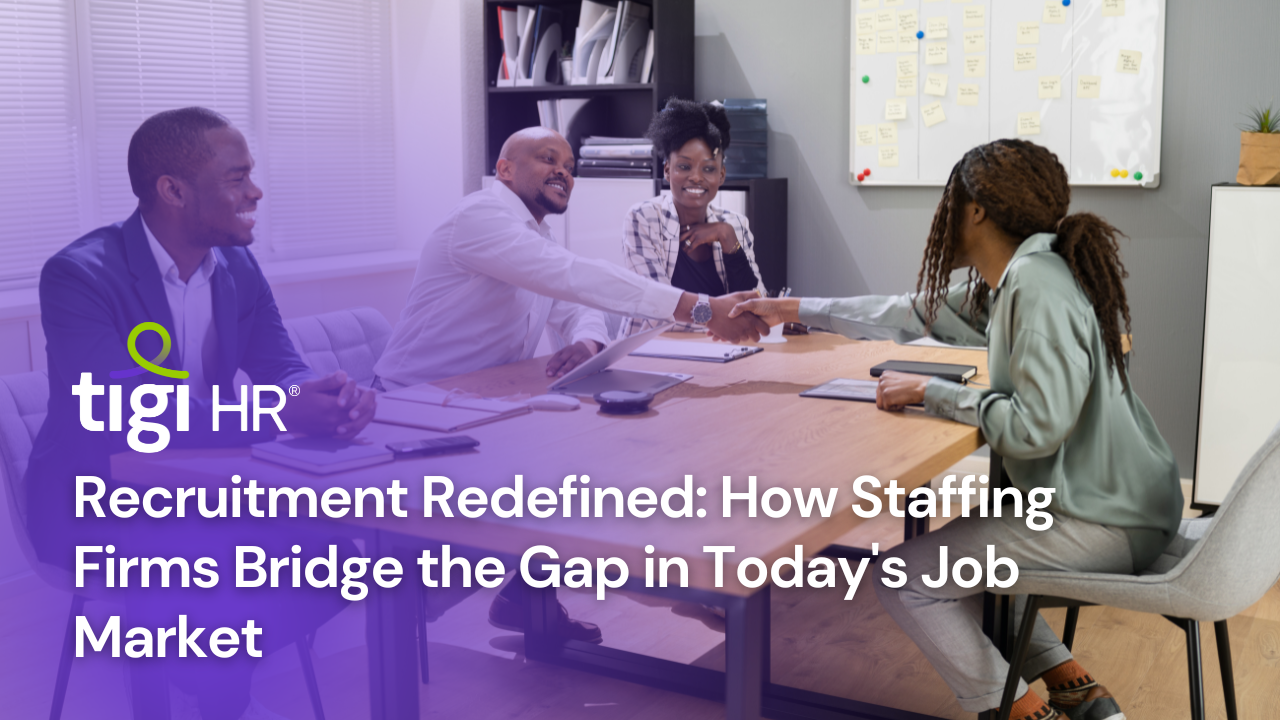In today’s dynamic job market, the landscape of recruitment has undergone a significant transformation. Traditional methods of hiring are giving way to more innovative approaches, and one key player in this shift is the staffing agency. Staffing firms have emerged as crucial intermediaries that bridge the gap between job seekers and employers. In this article, we will delve into the ways in which staffing agencies are redefining recruitment, backed by authentic statistics and insights, to meet the evolving demands of the modern job market.
The Changing Job Market Landscape
The job market is no longer a one-size-fits-all scenario. The rise of the gig economy, remote work, and the specialization of skills have led to a more complex hiring landscape. According to a report by McKinsey, 70% of executives believe that the demand for skills will increase over the next few years. Additionally, the rapid pace of technological advancements has created a skills gap, leaving employers searching for candidates with specialized expertise.
The Role of Staffing Firms
Staffing agencies have stepped in to address the challenges posed by these shifts. They act as intermediaries that connect job seekers with employers seeking specific skills and qualifications. By leveraging their industry expertise and vast networks, staffing firms have the ability to match the right talent with the right opportunities.
Customized Solutions for Employers
One of the most significant advantages staffing firms offer is the ability to provide tailored solutions for employers. Rather than relying on generic job postings, staffing agencies work closely with employers to understand their specific needs and craft job descriptions that align with those requirements. This targeted approach results in a higher quality pool of candidates who are better suited to meet the demands of the role to cover bridge the gap.
Statistics:
- According to a study conducted by the American Staffing Association, 76% of client companies rely on staffing firms to find candidates who possess the skills they need.
- A survey by Staffing Industry Analysts revealed that 80% of employers believe that staffing firms provide a valuable service in identifying candidates who are difficult to find through other means.
Navigating the Skills and bridge the gap
As mentioned earlier, the skills bridge the gap is a pressing concern for many employers. The evolving nature of industries and the demand for niche skills mean that finding the right talent can be challenging. Staffing agencies play a crucial role in addressing this gap by sourcing candidates with specialized skill sets. Through their extensive networks and databases, staffing firms can locate individuals with the required skills quickly and efficiently.
Statistics:
- The Adecco Group’s ‘Global Talent Competitiveness Index’ states that 78% of companies believe the skills gap is a significant concern.
- Randstad US conducted a survey which revealed that 40% of employers struggle to find employees with the right skills.
Flexibility and the Gig Economy
The gig economy has redefined the way people work. Temporary and contract roles have become more prevalent, offering flexibility to both job seekers and employers. Staffing firms excel in identifying candidates who are seeking such roles and connecting them with companies looking for short-term assistance or specialized projects.
Statistics:
- According to a study by Intuit, the gig economy is expected to comprise 9.2 million Americans by 2021.
- A report by the European Foundation for the Improvement of Living and Working Conditions found that 30% of all workers in the European Union engage in some form of temporary employment.
Diversity and Inclusion Initiatives
Diversity and inclusion have become integral aspects of modern workplaces. Companies are increasingly recognizing the value of a diverse workforce in driving innovation and success. Staffing agencies contribute to this by presenting a diverse range of candidates to employers, ensuring that job opportunities are accessible to individuals from all backgrounds.
Statistics:
- The Harvard Business Review reported that diverse teams are 45% more likely to increase market share.
- A survey by Glassdoor found that 67% of job seekers consider workplace diversity an important factor when considering employment offers.
Enhancing the Candidate Experience
Job seekers often find the recruitment process daunting and time-consuming. Staffing agencies enhance the candidate experience by streamlining the process. They act as advocates for candidates, providing guidance, interview preparation, and support throughout the hiring journey.
Statistics:
- According to a study by CareerBuilder, 69% of candidates are more likely to apply for a job if the application process is easy.
- A survey by Indeed showed that 58% of job seekers consider a positive experience more important than the actual job offer.
Conclusion
The modern job market is characterized by its complexity, diversity, and rapid changes. Staffing agencies have evolved to address these challenges by offering tailored solutions for employers, closing the bridge the gap, embracing the gig economy, promoting diversity, and enhancing the candidate experience. Backed by statistics and insights, it’s evident that staffing firms play a pivotal role in redefining recruitment and ensuring that both job seekers and employers find the perfect match in today’s ever-evolving job landscape.





